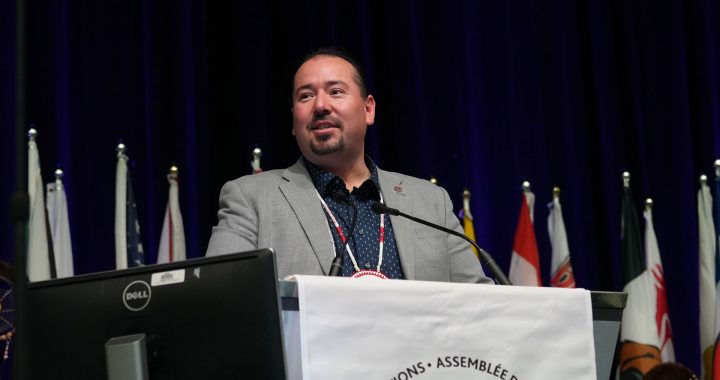Since the mid-1980s Mi’kmaw artist Jerry Evans has been using art to speak to his ancestry.
Evans is an actor, filmmaker and powwow dancer – and now a traditional Indigenous tattoo artist.
In the process, he’s helping others explore and express their identities as Indigenous peoples.
Like many in Newfoundland, the attempted assimilation of Mi’kmaq people and erasure of Mi’kmaq culture had a profound impact on him and his family.
“There was so much that was lost, that my artwork for me became a means to learn about who I was who my family is, who our people are here in this place,” he said.
“I guess to a certain extent it still speaks to that, my artwork does.”
The recent establishment of the Earthline Tattoo Collective in British Columbia presented Evans with a new opportunity.
Following in the footsteps of friend and fellow Mi’kmaw artist Jordan Bennett, Evans was selected as one of six Indigenous artists for the collective’s tattoo training residency in Kelowna, B.C.
Now he’s inking friends in the basement of his home in St. John’s, including people from Inuit, Mi’kmaq and Métis communities.
That includes his friend Stephen George, who already has a tattoo of his great-grandmother on his left arm.
On his right, a tattoo of his grandfather.
“I wanted something to connect the two ancestors on either arm and what Jerry’s doing now is—I call it Tkaqamkuk, you know, which is Mi’kmaw for Newfoundland, Land over the water,” he said.
“The jagged lines are the waves, and the straight line is the land. And the starburst in the middle, well, we’re the People of the Dawn, right? So where the sun first comes up. So it’s all there together.”
Evans and George were both denied Indian Status and membership under the Qalipu Mi’kmaq band.
But they said status is not what defines them as Mi’kmaq people.
“There was different things, bureaucratic, administrative things, that were going on that were quite beyond genealogy or identity issues that make us who we are — cultural things, ceremonial things,” said George.
“They can’t be captured in a piece of paper you send to the government.”
For Evans, the tattooing and its importance to him and others isn’t something Canada can measure in defining Indigenous people.
“It’s part of not just me reclaiming something that was denied our family,” he said. “But it’s something that was denied here in this place for most our people. And it’s a way to reclaim our traditions, our power, and I’m honoured to be able to do this.”










